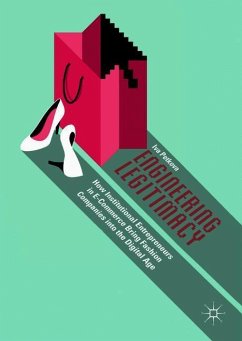
Capitalising Economic Power in the US
Industrial Strategy in the Neoliberal Era
Versandkostenfrei!
Versandfertig in 6-10 Tagen
87,99 €
inkl. MwSt.
Weitere Ausgaben:

PAYBACK Punkte
44 °P sammeln!
This book examines the American industrial strategy, from the late 70s to the present day, in what is now known as the 'neoliberal era'. The author illustrates the ways in which the protection and promotion of American companies and industries took place in the context of the international 'free market'. He provides clear evidence of how the economic power of the United States - wielded to influence the formal and informal institutions of the neoliberal order - has been used as a tool for enhancing its competitive advantage against other world economies.












